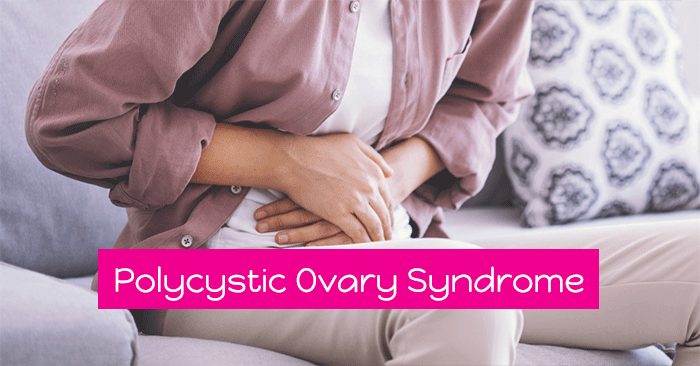Polycystic ovary syndrome (PCOS) Causes, Symptoms and Treatment
Polycystic Ovarian Syndrome (PCOS) is a common cause of infertility in women of childbearing or reproductive age, between 15 and 45. It involves the formation of multiple cysts (fluid-filled sacs) in both your ovaries. It is associated with various factors, ranging from genetics to lifestyle choices.
Women may not realize they have PCOs unless they are trying to conceive, usually around the ages between 20 and 30. PCOS occurs in around 1 out of every ten women and is one of the most easily treatable causes of infertility.
PCO Causes:
There are multiple causes of PCOS, but mostly they revolve around the development of insulin resistance in a female. When there is high insulin resistance, there are increased levels of insulin circulating in the blood which lead to increased production of androgens (male hormones). The signs and symptoms are due to excessive androgen production in females. The causes of PCOS include:
How To Get Rid Of PCOS & PCOD Naturally
GENETICS: Women with a strong family history of PCOS are more likely to develop PCOS themselves, especially due to its autosomal dominant pattern of inheritance.
OBESITY: Obese women have higher insulin resistance leading to increased levels of circulating insulin which in turn enhances androgen production.
WEAK IMMUNITY: A weakened immune system and increased stress levels can contribute to PCOS.
INFLAMMATION: Inflammation of or around the ovaries can stimulate increased androgen production.
See Also: Irregular Periods: Possible Causes of a Missed Period and Treatment
Symptoms and Signs of PCOS
The symptoms and signs found in women with PCOS are mostly related to excessive androgen production. The most common of these presenting symptoms include:
Obesity: Usually women with PCOS are quite obese or overweight.
Acne: They make have cystic acne on the face, back, shoulders, neck, etc.
Hirsutism: Excessive hair growth on the face, chin or other body parts like in men.
Weight Gain: Women with PCOS tend to gain weight more easily
Irregular menstrual cycle: They may present with amenorrhea or irregular menstrual cycles, and this is one of the most common reasons for which women visit the doctor.
Hair Thinning – Hair loss or thinning, especially on the scalp, just like in male pattern baldness.
Difficulty getting pregnant: Women are more likely to have problems conceiving children.
Darkened, velvety skin: Usually affects creases, neck and groin areas.
PCOS is associated with many complications as well including:
- Diabetic Mellitus type 2
- Infertility
- Premature birth or miscarriage
- Depression, mood disorders, anxiety
- Sleep apnea
- Abnormal Uterine Bleeding
- Dyslipidemia
- Endometrial Cancer
Treatment:
Now, with the advancement of medicine, PCOS is quite simply controlled with the use of medications and lifestyle changes. If you notice the development of any such signs and symptoms, you should visit your OBGYN doctor and discuss your condition. They will run blood tests, perform an ultrasound and prescribe you the appropriate medications, along with advice on lifestyle modifications. These include:
DIET CONTROL: A healthy balanced diet is advised which focuses on weight loss and low carbohydrate consumption as well. If the weight gain is controlled and a normal BMI is achieved, it naturally fixes your PCOS.
INCREASED ACTIVITY: By increasing daily activity, by walking or exercising, you can increase weight loss as well and treat your PCOS.
MEDICATIONS: your doctor may prescribe you oral contraceptive pills or metformin to regulate your cycle and balance the levels of hormones in your body, especially by reducing the production of androgens (like testosterone).
TREATING INFERTILITY: Medicines may be prescribed to promote ovulation in women with PCOS, so they have higher chances of conceiving.
TOPICAL OINTMENTS OR CREAMS: For reducing hair growth and controlling acne and hirsutism, topical creams are advised by the doctor.
PCOS has no cure, but it is easily controlled nowadays. Women who have trouble getting pregnant can have children as soon as they get their PCOS under control and eventually live a healthy lifestyle.

